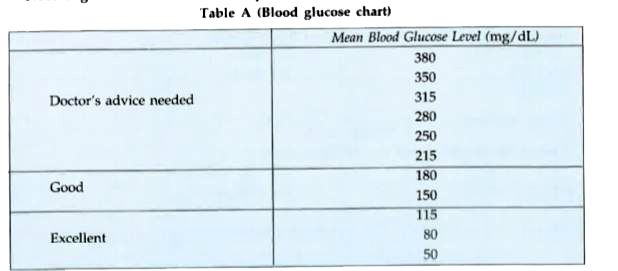Glucagon from Pancreatic cell decreass blood glucose level.
The correct Answer is:False
Topper's Solved these Questions
- CHEMICAL COORDINATION AND INTEGRATION BOOK - KUMAR PRAKASHANCHAPTER - CHEMICAL COORDINATION AND INTEGRATION EXERCISE - Objective Section (Pick up the correct option)
9 Videos
- CHEMICAL COORDINATION AND INTEGRATION BOOK - KUMAR PRAKASHANCHAPTER - CHEMICAL COORDINATION AND INTEGRATION EXERCISE - Objective Section (Fill in the blanks)
9 Videos
- CHEMICAL COORDINATION AND INTEGRATION BOOK - KUMAR PRAKASHANCHAPTER - CHEMICAL COORDINATION AND INTEGRATION EXERCISE - Objective Section (Analogy Type Questions)
9 Videos
- CELL CYCLE AND CELL DIVISION BOOK - KUMAR PRAKASHANCHAPTER - CELL CYCLE AND CELL DIVISION EXERCISE - Question Paper (Describe in detail )
1 Videos
- DIGESTION AND ABSORPTIONBOOK - KUMAR PRAKASHANCHAPTER - DIGESTION AND ABSORPTIONEXERCISE - Question from Module (Question Paper)
11 Videos
Similar Questions
Following are events taking place for blood glucose regulation -
(i) increase in blood glucose
(ii) increase in circulating from glucagon
(iii) release of glucose from glycogen
(iv) decrease in blood glucose level
Select the option depicting the correct sequence of these events.
View SolutionHow is blood glucose level maintained?
View Solution
Knowledge Check
Following are events taking place for blood glucose regulation -
(i) increase in blood glucose
(ii) increase in circulating from glucagon
(iii) release of glucose from glycogen
(iv) decrease in blood glucose level
Select the option depicting the correct sequence of these events.A(iv), (iii) , (ii) , (i)B(iii), (i) , (ii) , (iv)C(iv), (ii) , (iii) , (i)D(i), (ii) , (iv) , (iii)Glucagon increases the blood glucose concentration by
Apromoting glycogenolysisBincreasing the concentration of fructose 2,-6-bisphosphateCincreasing the concentration of pyruvate kinaseDinhibiting gluconeogenesisAssertion. Insulin and glucagon have the antagonistic effects on the blood-glucose level.
Reason. Insulin lowers the blood-glucose level by causing its storage in the liver and consumption in the tissues. Glucagon raises the blood-glucose level by convertin liver glycogen into blood-glucose and changing amino acids and fats into glucose.AIf both A and R are true and R is the correct explanation of A.BIf both A and R are true but R is not the correct explanation of A.CIf A is true but R is false.DIf both A and R are false.
Glucagon is released from alpha cells
View SolutionWhat hormones are produced when the body's blood glucose levels drop below normal ? How do these hormones act to return the level to normal ? What hormone is produced when the body's blood glucose levels become elevated ? How does this hormone act to return the level to normal ?
View SolutionWhich of the following is a hormone responsible for the regulation of blood glucose level ?
View SolutionStudy these tables related to blood sugar levels and answer the questions that follow :
Table A (Blood glucose chart)


Refer to the Table A and suggest the value of the mean blood glucose level beyond which doctor's advice is necessary :
View SolutionWhich of the following is a hormone responsible for the regulation of blood glucose level ?
View Solution
